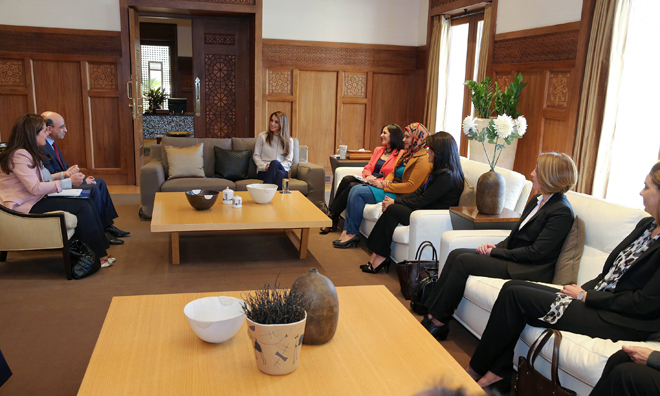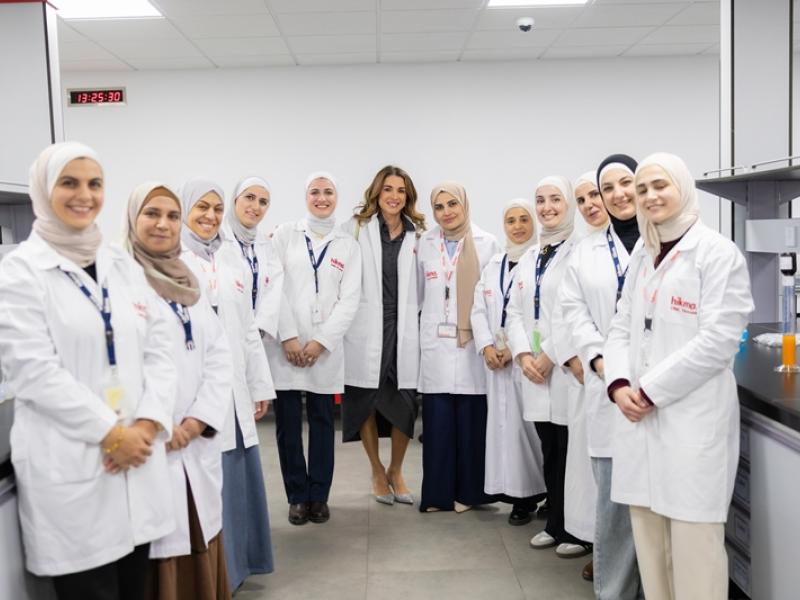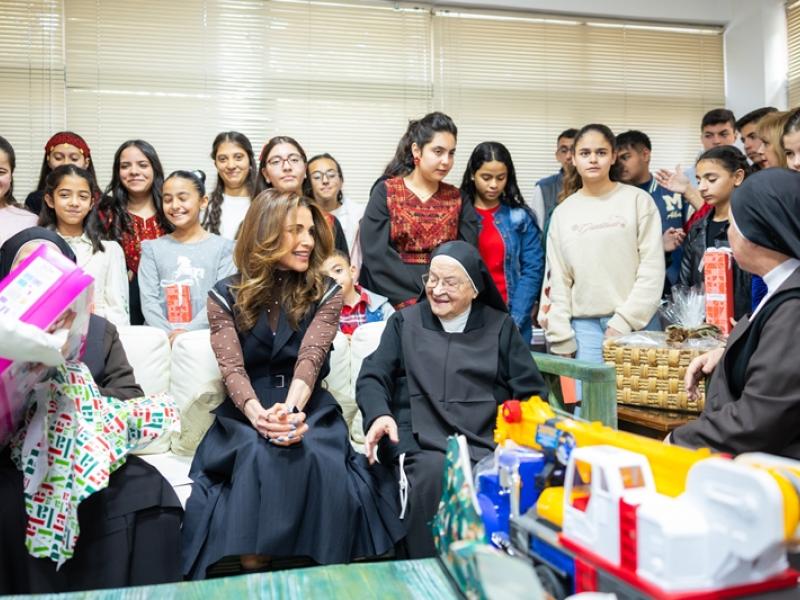(Office of Her Majesty- Press Department- Amman) Her Majesty Queen Rania Al Abdullah met today with members of SADAQA, a campaign launched in 2011 which seeks to promote friendlier working environments for women through the provision of daycare centers to enable women to lead successful lives in the workplace.
The campaign advocates for the implementation of Article 72 of the Jordanian labour law which requires companies that have 20 female employees with a total of 10 children under the age of 4 to provide an adequate daycare center in the workplace under trained personnel.
Attendees briefed Her Majesty on SADAQA’s strategy which seeks to support women to maintain their careers and enhance their chance of assuming leadership positions. The meeting was also attended by Secretary General of the Ministry of Labor and member of the SADAQA team Mr. Hamada Abu Nijmeh.
SADAQA’s team explained that implementing Article 72 of the labour law would not only contribute to increasing the percentage of female participation in the workforce, but would also aid in improving the country's overall national development. This is achieved through ensuring equal opportunities for women and men in the workplace and increasing female participation in the decision-making process.
In cooperation with the Ministry of Labour and other stakeholders, SADAQA raises awareness about Article 72 and educates on how it should be applied within companies. The ministry extends its role by carrying out inspection campaigns to ensure the implementation of the law and the abidance of companies.
In the coming year, SADAQA plans to target 162 large companies each of which employs over 100 women. The targeted companies operate in five governorates (Amman, Zarqa, Karak, Salt, and Irbid) and work in various sectors: schools and universities, hospitals, factories, banks, telecom and pharmaceutical companies.
The efforts of the campaign will be coordinated through the collaboration of SADAQA’s three major teams. The first team is the technical team, led by experts who own or run daycare centers. This team will provide technical support and assist employers in establishing adequate facilities and provide expert advice on the recruitment and training process of caregivers.
The second team is a ‘support team’ formed through the partnership of four local NGOs concerned with women’s rights in Jordan. This team will aim to help protect women’s economic rights by equipping them with proper skill sets and educating them with a better understanding of labour laws.
The third and last team is the ‘field team’ responsible for carrying out awareness campaigns that encourage the recruitment of women and men who are unemployed as a result of the absence of such facilities in different workplaces.
SADAQA is also lobbying parliament to make amendments to Article 72 to ensure that the law works to benefit both men women. For instance, the campaign recommends that the law should require companies with 30 employees, regardless of gender, to provide adequate daycares. This amendment would ensure that the application of the law will not negatively impact women employment rates.
Research conducted by SADAQA in 2011 showed that workplace childcare centers helped women overcome social and psychological pressures associated with leaving children at home. The study found that providing a friendlier working environment for women contributed to improving their overall performance and productivity. It also helped them increase their income whereby they no longer need to take leaves without pay to care for their children at home.
The research results indicated that such changes in working conditions increased staff morale, job satisfaction, reduced stress, and improved interpersonal skills. This, for the employer, translated into less absenteeism and employee turnover, which ultimately resulted in increased savings and profits for corporations. Over time, this multitude of benefits for both employers and employees will allow women to maintain their careers until they reach retirement age and increase their chances of pursuing leadership positions.



